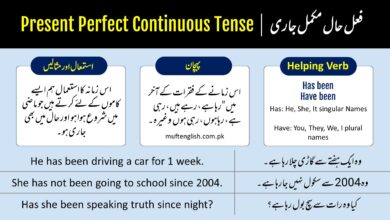Passive Infinitive in English Grammar with Examples

Passive infinitive Complete Use in English
Passive infinitive has much importance in the English language and English becomes very handy if we know these passive infinitives.
Definition: “To be+ 3rdVerb” is called passive infinitive.
Note: “Passive infinitive” gives the passive meaning of “The future indefinite tense”.
ex
A meeting is to be called on this issue. = A meeting will be called on this issue.
A committee is to be made very soon. = A committee will be made very soon.
A civil hospital is to be built in Quetta.= A civil hospital will be built in Quetta.
A prince control team is to be made to control prices of eatable goods in the month of Ramzan. = A price control team will be made to control prices of eatable goods in the month of Ramzan.
Progressive infinitive
Definition: “To + be + 1V+ing” is called a progressive infinitive.
Progressive infinitives express the idea that the action is/was in progress at the time of the preceding verb.
Note: “The progress/Continuous infinitive” expresses the idea that the action of the progressive/continuous infinitive is/was in progress at the time of the preceding main verb.
Note: If the preceding main verb gives the sense of the present tense, the progressive/Continuous infinitive gives the sense/meaning of the present continuous tense.
ex
Hope to be enjoying. ( Usually at the end of letters) = I hope that you are enjoying it.
She is happy to be working with them. = The time/moment she is working with them, she is happy. = She is happy that she is working with them.
You seem to be working a lot nowadays. = It seems that you are working a lot nowadays.
He seems to be thinking a lot. = It seems that he is thinking a lot.
She seems to be drinking wine a lot. = It seems that she is drinking wine a lot.
It is nice to be sitting with you. = It seems that I am happy and relaxed while sitting with you.
She is happy to be teaching at the University. = She is happy that she is teaching at the University.
He pretends to be sleeping. = He pretends that he is sleeping.
It seems/looks to be raining.= It seems that it is raining.
Note: If the preceding main verb of “the progressive/continuous infinitive” gives the sense of the past tense, the following progressive/continuous infinitive gives the meaning of the past continuous tense.
ex
I was happy to be reading in college. = I was happy that I was reading in college.
You seemed to be working a lot those days.= You seemed that you were working a lot those days.
He seemed to be thinking a lot. = It seemed that he was thinking a lot.
She seemed to be drinking a lot.= It seemed that she was drinking a lot.
It was nice to be sitting with you.= It was nice that I was sitting with you.
She was happy to be teaching at the University. = She was happy that she was teaching in University.
It seemed to be raining.= It seemed that it was raining.
The perfect infinitive
Definition: “To have + 3rdV” is called a perfect infinitive.
Note: (i) If “perfect infinitive” is preceded by “form” of the present tense (is, are, am), it gives the meaning of “the present perfect tense” or “the past indefinite tense”.
ex
They are happy to have won the match.= They are happy that they won the match./ They are happy that they have won the match.
I am sorry to have disturbed you. = I am sorry that I disturbed you.
I am sorry to have made you wait. = I am sorry that I made you wait./ I am sorry that I have made you wait.
He is happy to have got a brand-new car.= He is happy that he got a brand-new car.
They are happy to have met the P.M. of Pakistan. = They are happy that they have met the P.M. of Pakistan.
He is happy to have passed the exam.= He is happy that he passed the exam./ He is happy that he has passed the exam.
She is sad to have failed an exam.= She is sad that she failed in the exam./ She is sad that she has failed in the exam.
He is the only doctor to have won an award.= He is the only doctor who has won an award./ Who won an award?
He is said to have gone.= It is said that he has gone.
Note: (ii) If “present infinitive” is preceded by “form” of the past tense (was, were), it gives the meaning of “the past perfect tense”.
ex
They were happy to have won the match. = They were happy that they had won the match.
He was sorry to have disturbed you.= He was sorry that he had disturbed you.
He was happy to have got/ had a brand-new car. = He was happy that he had got/had a brand-new car.
They were happy to have met the P.M. of Pakistan. They were happy that they had met the P.M. of Pakistan.
He was happy to have passed the exam. = He was happy that he had passed the exam.
She was sad to have failed the exam. = She was sad that she had failed in the exam.
Note: If “perfect infinitive” is preceding by the present form of any verb, the perfect infinitive gives the meaning according to the sense of the preceding verb; if the sense of the verbs refers to “the present tense”, the perfect infinitive gives the meaning of the present perfect tense or the past indefinite tense. If a sense of the preceding verb refers to the future tense, the perfect infinitive gives the meaning of the future perfect tense.
ex
They look to have lost the match. = They look like they have lost the match./ It looks like they have lost the match.
She seems to have failed in the exam. = She seems to have failed in the exam. = It seems that she has failed in the exam.
She understands to has lost the trust.= She understands that she has lost the trust.
I hope to have completed my work by 5 o’clock tomorrow. = I hope that I will have completed my work by 5 o’clock tomorrow.
We expect to have finished this project by June. = We expect that we will have finished this project by June.
Note: If the “perfect infinitive” is preceded by the “ii form” of a verb, the “perfect infinitive” gives the meaning of the past perfect tense.
ex
They looked to have lost the match.= They looked like they had lost the match.
She seemed to have failed in the exam.= She seemed that she had failed the exam.
She understood to have lost the trust.= She understood that she had lost the trust.
Note: If the preceding main verb gives the sense of the future tense, “the perfect infinitive” gives the meaning of ” the future perfect tense”.
ex
He hopes to have completed his work by 5 o’clock tomorrow.= He hopes that he will have completed his work by 5 o’clock tomorrow.
They expect to have finished this project by June 2023. = They expect that they will have finished this project by june 2023.
Note: The object can come between the perfect infinitive.
ex
He hopes to have his work completed by 5 o’clock tomorrow.
They expect to have this project finished by June 2023.
” Perfect infinitive” can be used to express the idea which was scheduled/arranged/decided/planned to happen but didn’t happen or the speaker wished to do something but couldn’t do it.
ex
I was to have gone to the bazaar but I couldn’t go because of the guests.= It means my going to the bazaar was scheduled but I couldn’t go due to my guests.)
She was to have typed the letters but she didn’t type them. = It means that it was decided/scheduled that she was to type the letters but she didn’t type them.)
They were to have come to Quetta today but they couldn’t come.
He was to have done this work but he didn’t do it.
We were to have met the president but we couldn’t.
I was to have been the chief guest of the function but I got an accident on the way.
I would like to have gone with them but I couldn’t get leave.
I would have liked to have worked at University but I didn’t have time.
I hope This blog has helped you learn basic infinitives and speak and write better English. English learning grammar will help you make your English sentences correct and meaningful.





